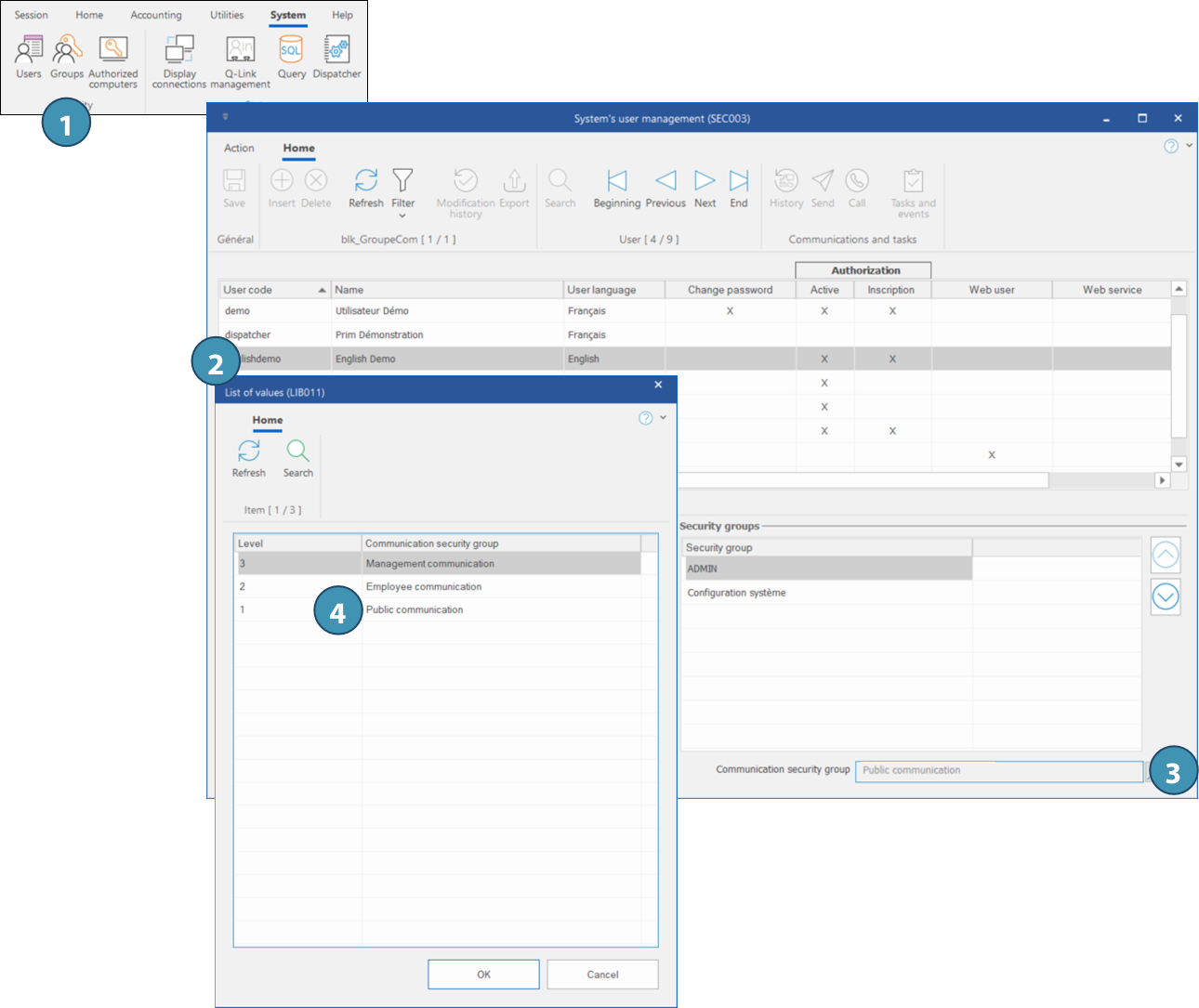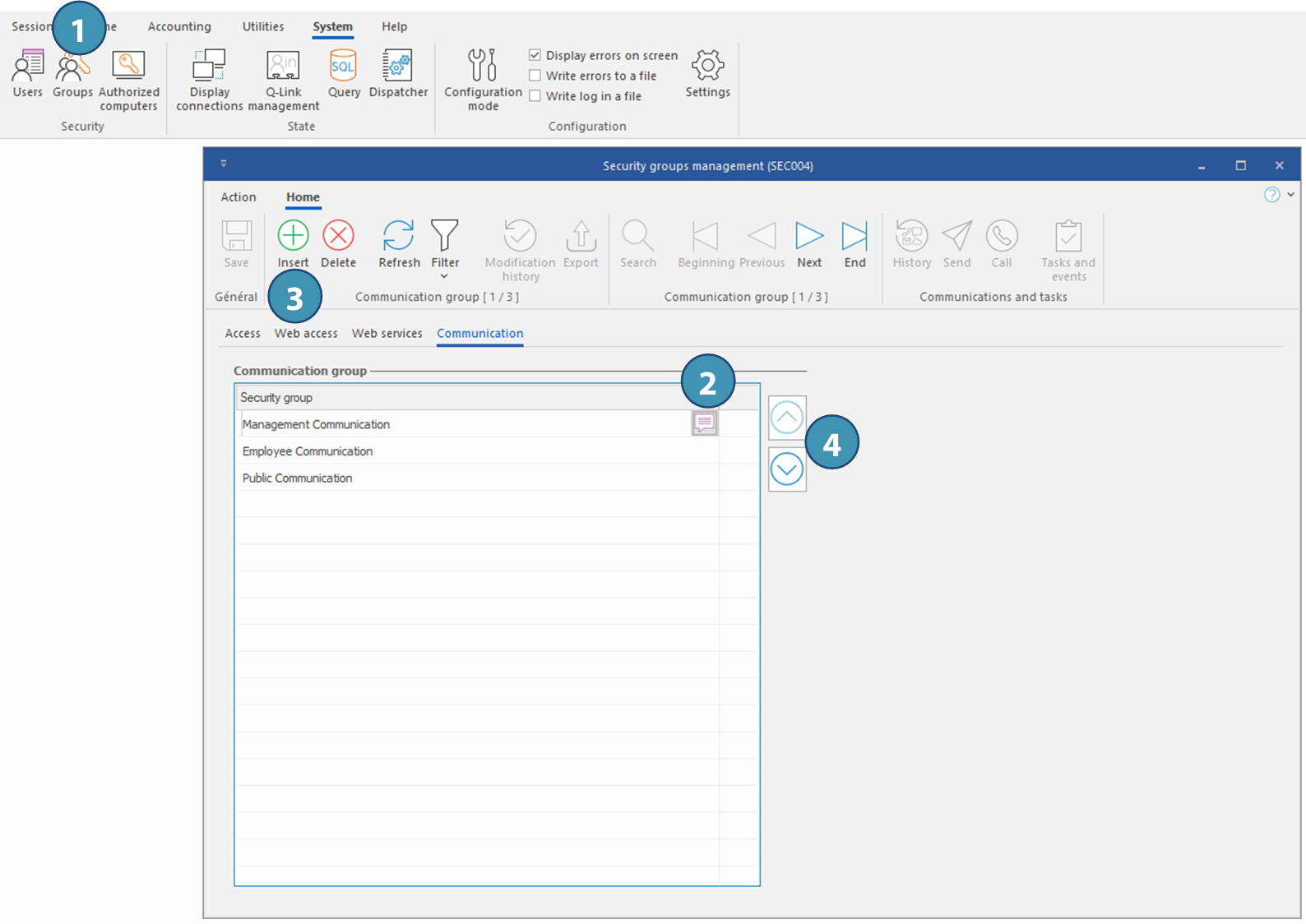
|
WARNING: This section is intended for advanced users and "Super users" of PRIM Logix.
The configuration items presented in this section may indeed have an impact on your operations.
If in doubt, consult your system administrator.
Please note that only users in the appropriate security groups can access the software configuration windows.
|
Communication Security
PRIM users are assigned a security level when they are created.
For more information on managing security groups, click here.
Security group for communication management
In the basic configuration, there are 3 levels of security group for communication management: Management Communication, Employee Communication, Public.
Depending on their communication security group, users have access to a restricted number of communications. For example, users who are members of the "Management Communication" security group have access to communications between people in the "Management Communication" security group.
By default, it is recommended that all new users be assigned the "Public" communication security group.
 Assignment of the communication security group is independent from the assignment of general security groups. Assignment of the communication security group is independent from the assignment of general security groups.
1.In the System ribbon, click on Users to open the System's users management (SEC003) window.
2.Select the user to whom you wish to assign the appropriate communication security group.
3.At the bottom of the Security groups section, click on the magnifier besides the field Communication security group to display the list of values available for your company.
4.Select the desired security level (by default, choose "Public") and click OK.

|
Il est possible de modifier les groupes de sécurité de communication au sein du système.
1.In the System ribbon, click on Groups to open the Security Groups management window and move to the Communication tab.
2.Click on the translation icon to rename an existing group,
3.Click on Insérer  (or F2) to add a new communication security group. (or F2) to add a new communication security group.
4.Use the arrows to change hierarchy of communication groups. A group will always have access to communications of a lower level, but not to communications of a higher level. For instance, a member of the group "Communication Employé" will have access to communications of "Employés" and "Public" groups, but not to communications of "Direction".

|




 (or F2) to add a new communication security group.
(or F2) to add a new communication security group.